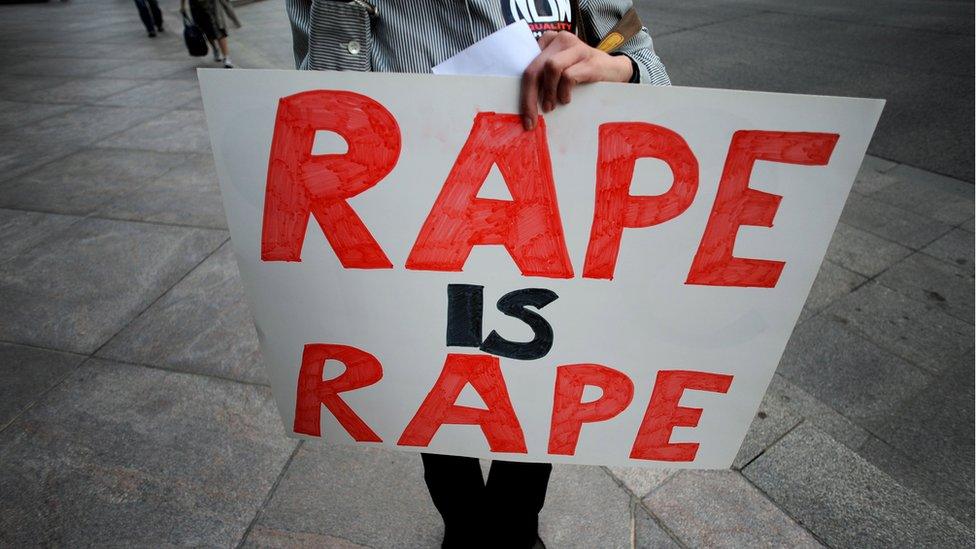Argentine women strike after fatal rape of teenager
- Published

Lucia Perez was 16 years old and a high school student when she suffered the rape that killed her
Thousands of people in Argentina have walked out of work for an hour in protest over the horrific rape and murder of a teenage girl.
Lucia Perez, 16, was drugged and raped before being killed in the city of Mar del Plata.
Two men who left her at a hospital said she overdosed on drugs. But doctors found evidence she had been subjected to extreme sexual violence.
Activists urged women to wear black and join street marches.
Thousands of protesters marched in Buenos Aires and other Argentine cities on Wednesday afternoon.
"If you touch one of us, we all react," read signs carried by many protesters.

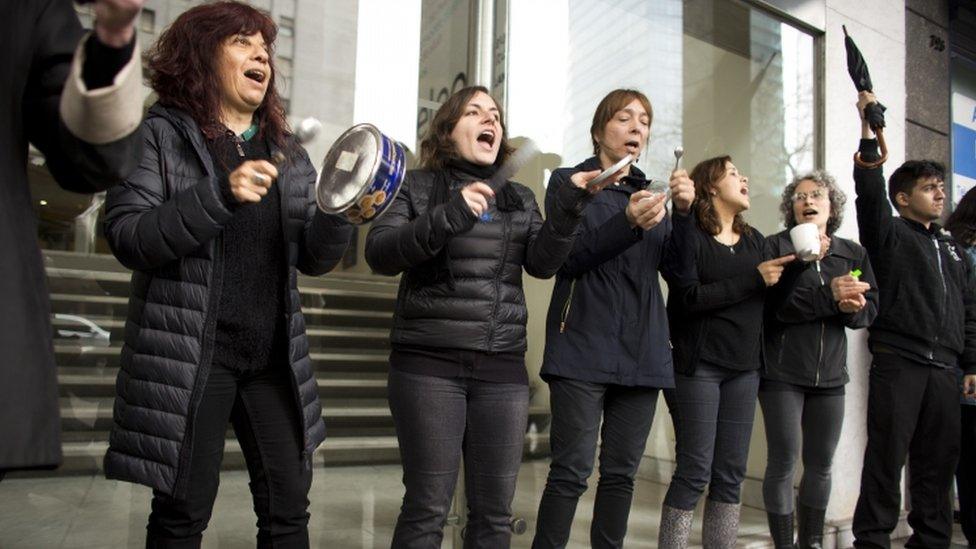
Activist groups called the actions "Miercoles Negro" - Spanish for Black Wednesday.
Anti-establishment rage, by Daniel Pardo Vegalara, BBC News, Buenos Aires
Pouring rain meant nothing for thousands of Argentinians who wanted to have their voices heard on Wednesday. Neither did ferocious wind that seemed to come from every direction.
Wearing all black, many stopped whatever they were doing in a women-only strike.
They revealed tremendous anger for the cultural values that keep macho practices alive here and all over Latin America.
But they also showed an anti-establishment rage - some of them even said they are not expecting any sort of change of attitude from the government, despite President Mauricio Macri's efforts to tackle gender issues.
What they wanted, they said, was a cultural change.
Today's massive demonstration could be a sign that that change is already taking place.

Earlier, women and men across the country left their places of work for an hour.
"In your office, school, hospital, law court, newsroom, shop, factory, or wherever you are working, stop for an hour to demand 'no more machista violence'," the march organisers wrote.
Marches in support took place in Mexico, Bolivia, Chile, Paraguay and Uruguay.
The Argentina Solidarity Campaign also organised a vigil of support outside the Argentine embassy in London.
Machismo is the Spanish word for an exaggerated form of masculinity, which campaigners say engenders attitudes that in their extreme form lead to men killing women.
Tens of thousands of people rallied in the streets in June last year in protest at violence against women, and repeated marches and rallies have taken on the slogan "ni una menos" - Spanish for "not one woman less".
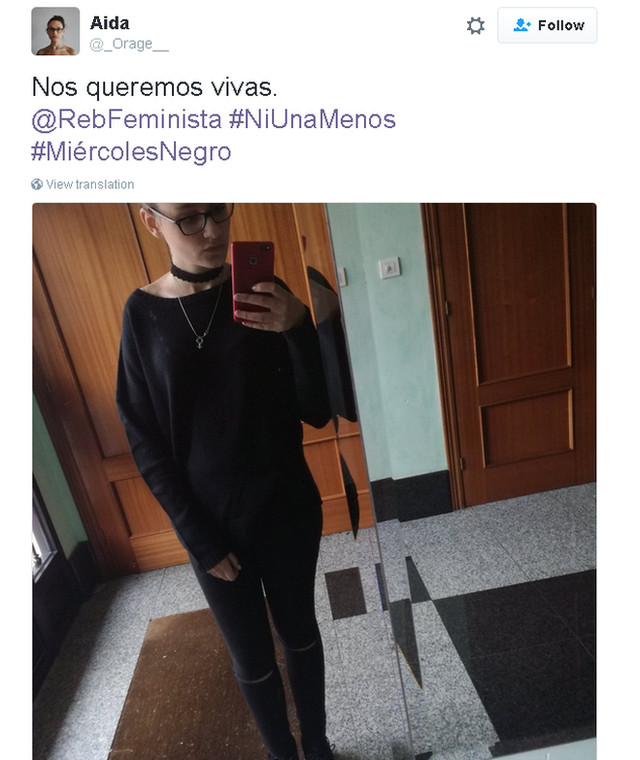
Women tweeted pictures of themselves wearing black - this one wrote "We want to live".
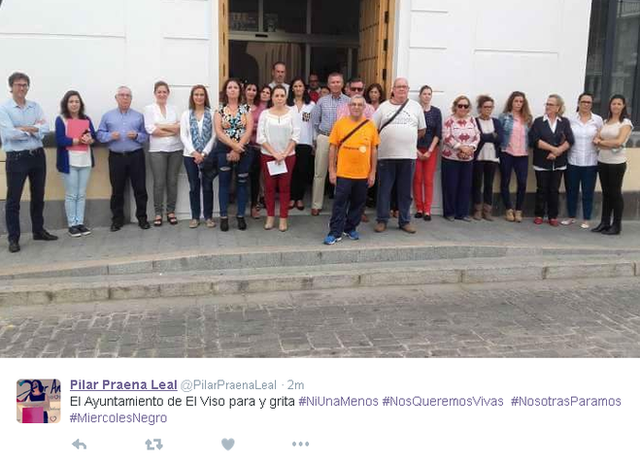
Both men and women joined this walkout at a town hall in the south of Spain, and the tweeter wrote that they had stopped to shout "we want to live"
Lucia's 19-year-old brother, Matias, wrote in a Facebook post that taking to the streets and shouting together was the only way to prevent "thousands more Lucias" being killed, and the only way to "close her eyes and see her rest in peace".
On average, one woman is killed in domestic violence cases every 36 hours in the country.
Argentina adopted an anti-femicide law in 2012, with harsher penalties for men who kill women when gender plays a part in the crime.
The new legislation also has tough penalties for domestic violence. Fifteen other countries in Latin America have written such laws, but critics say they are not being effectively implemented.
Warning: Description of extreme sexual violence.
Earlier this year, Argentina's President Mauricio Macri announced a series of measures to try to tackle violence against women, such as funding electronic tags for violent men, and creating a network of women's refuges. The measures will begin next year.
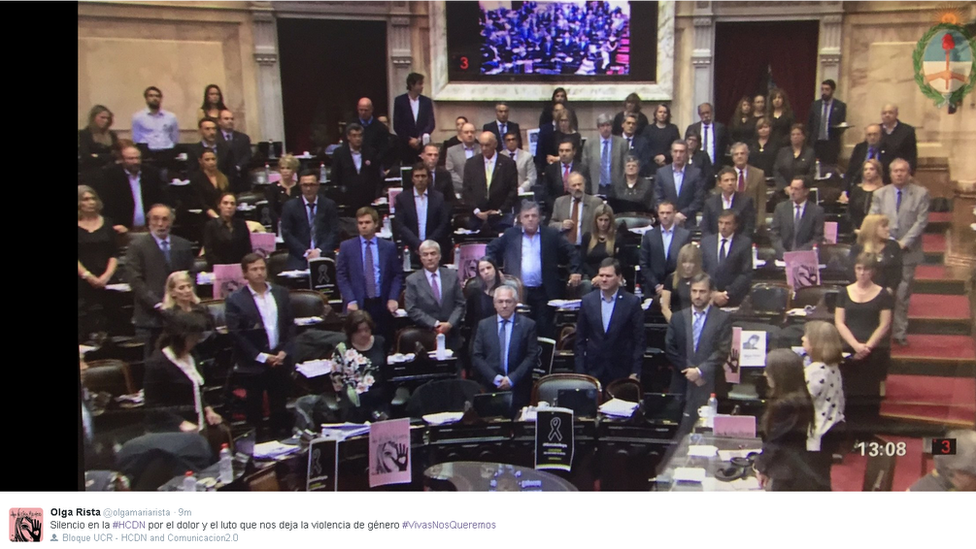
Argentine MPs held a moment's silence
Three men have been arrested in connection with Lucia's death.
Prosecutors say she was drugged with marijuana and cocaine before the rape.
A foreign object was thrust into her anus and caused pain so severe that she went into cardiac arrest.
Lucia died shortly after she was taken to hospital.
The lead prosecutor, Maria Isabel Sanchez, told the media: "I know it's not very professional to say this, but I am a mother and a woman and I have seen a thousand things in my career, but never anything equal to this litany of abhorrent acts."
Lucia's mother, Marta, said: "We can't understand such barbarity. It's impossible to understand."
"The way they killed her was inhuman," said Lucia's father, Guillermo.
The country's Justice Minister, German Garavano, met Lucia's parents last week and said the government was working to make sure young people "do not end up as the victims of these tragic acts".
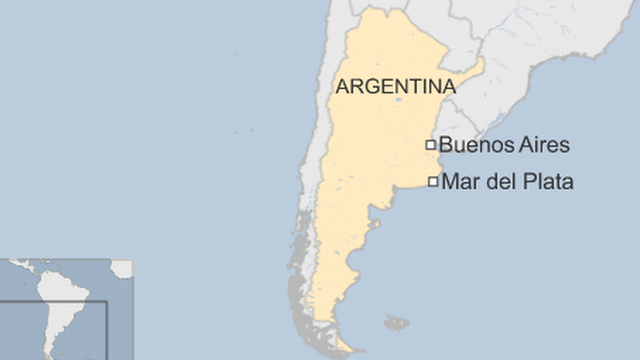
- Published4 June 2015
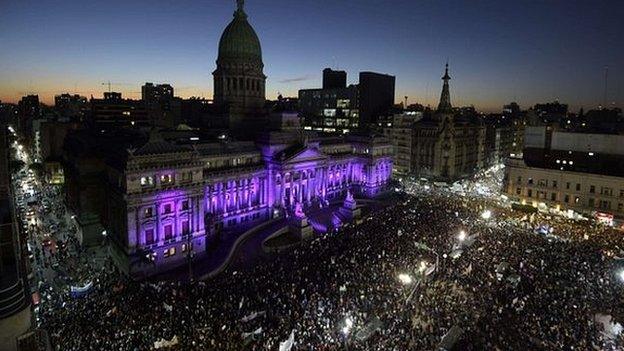
- Published29 July 2016
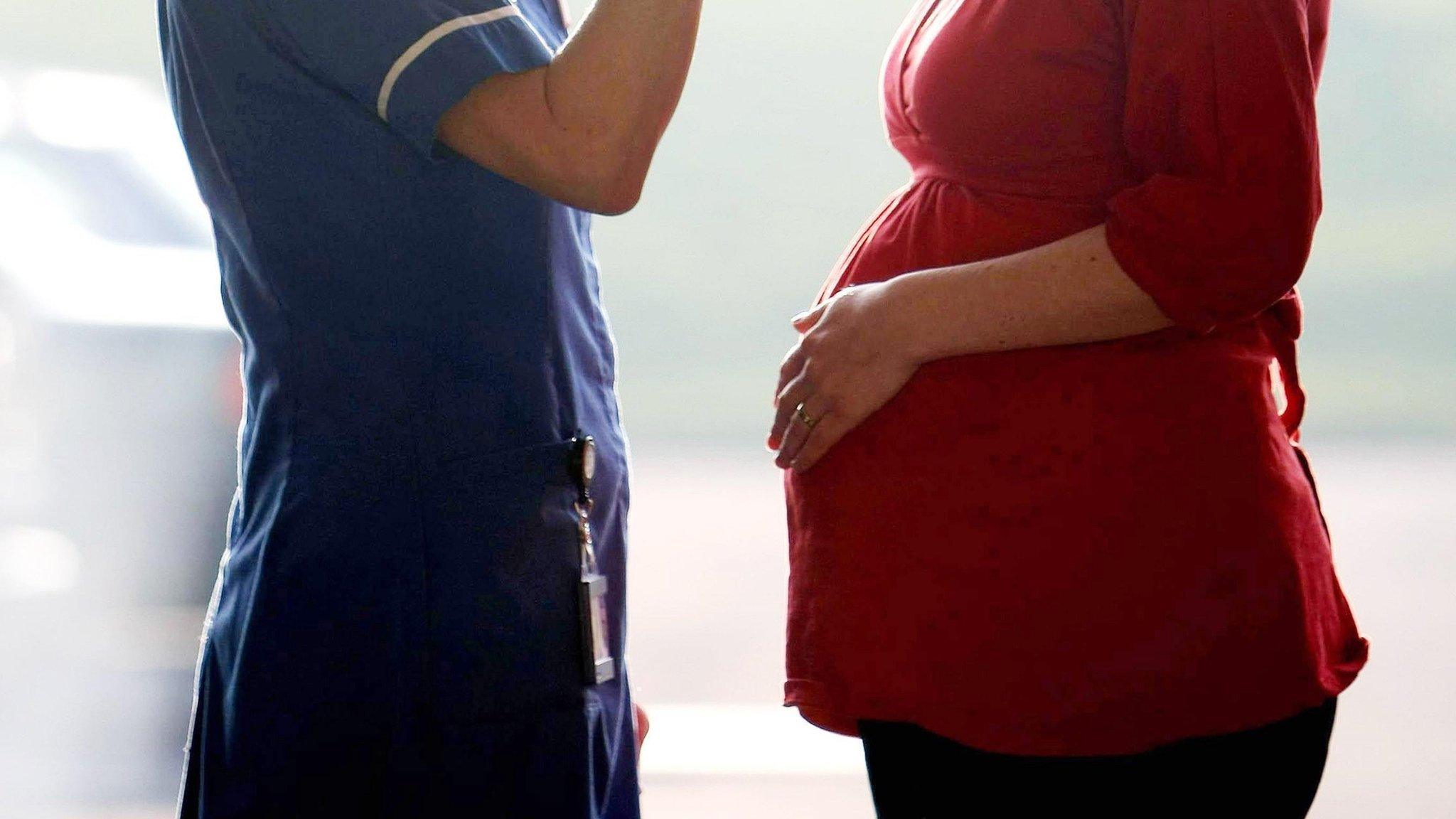
- Published7 June 2016
